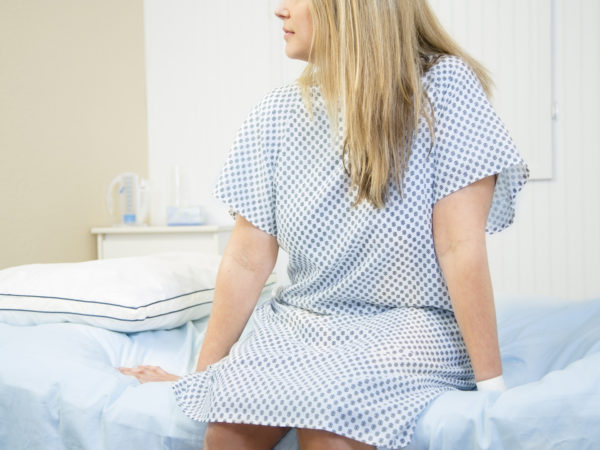Do Bacteria Cause Breast Cancer?
I’ve heard that bacteria may be the cause of breast cancer. Can you tell me anything about this and what it would mean for treatment or prevention?
Andrew Weil, M.D. | January 18, 2018

New research has identified differences in the bacteria found in the breasts of healthy women compared to those with breast cancer. Investigators at the Cleveland Clinic noted that researchers have long suspected that a “microbiome” within breast tissue plays a role in the development of cancer. If they’re on the right track, future findings may help explain the gap between known causes of breast cancer, such as genetic mutations, and the fact that more than half of all women diagnosed with the disease have no known risk factors.
We also don’t know why only a fraction of women with a genetic predisposition to breast cancer or those who have been exposed to known environmental risk factors develop the disease. “Clearly, additional contributing factors need to be identified,” the Cleveland Clinic team wrote.
We generally associate the term “microbiome” with the community of organisms that populate our digestive system and influence our health. We know that obesity is associated with changes in the microbiome, as are other health problems, ranging from acne and diabetes to Parkinson’s disease.
For the Cleveland Clinic study, researchers examined tissue from 57 breast cancer patients who had mastectomies and 21 healthy women who had elective cosmetic breast surgery. They noted distinct microbial differences between healthy and cancerous breast tissue, and showed that the healthy tissue contains more of the bacterial species Methylobacterium. They also found increased levels of gram-positive bacteria, including Staphylococcus and Actinomyces, in the urine of the cancer patients. What’s not yet known is the role these bugs may play in breast cancer development and how targeting them might make the breast less hospitable to the disease. Instead, the study has provided “proof-of-principle” – enough evidence to support further research into the connection between bacteria and breast cancer development.
One hint of a connection comes from earlier research showing that increased use of antibiotics is linked to an increased risk of breast cancer. A study published in 2004 found that women who took antibiotics for more than 500 days or who had more than 25 prescriptions for these drugs during a 17-year period had twice the risk of breast cancer compared with women who hadn’t taken any antibiotics.
On the positive side, other research has suggested that the reason breast-feeding is linked to a lower risk of breast cancer may be the effect producing breast milk has on the growth of beneficial microorganisms.
Study co-senior author Charis Eng, M.D., Ph.D., chair of Cleveland Clinic’s Genomic Medicine Institute and director of the Center for Personalized Genetic Healthcare, said that the researchers hope to “find a biomarker that would help us diagnose breast cancer quickly and easily. In our wildest dreams, we hope we can use microbiomics right before breast cancer forms and then prevent cancer with probiotics or antibiotics.”
But first, as the researchers noted, more and larger studies are needed to explore the link between the breast microbiome and breast cancer development and what it could mean for treatment of the disease. I’ll update you on this as new findings become available.
Andrew Weil, M.D.
Source:
Stephen R. Grobmyer and Charis Eng et al, “ Breast tissue, oral and urinary microbiomes in breast cancer.” Oncotarget, August 14, 2017; DOI: 10.18632/oncotarget.21490









